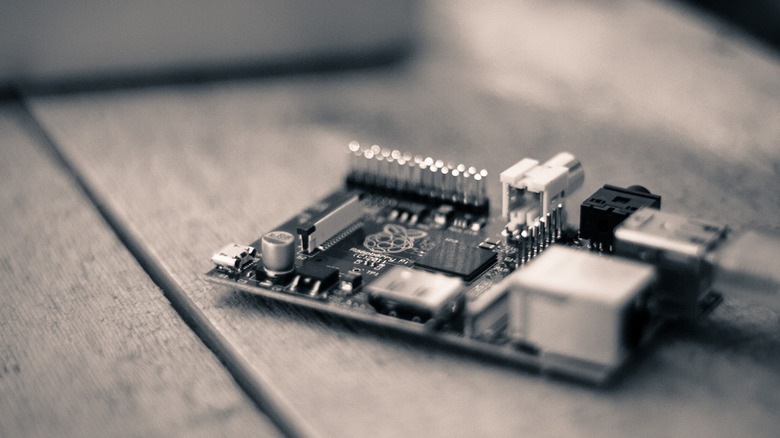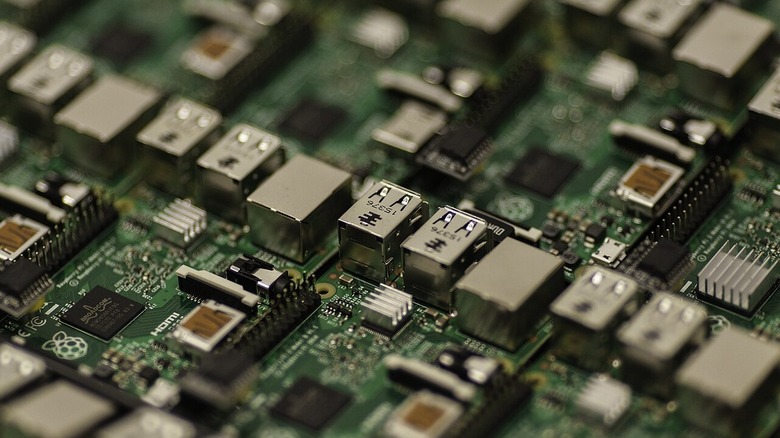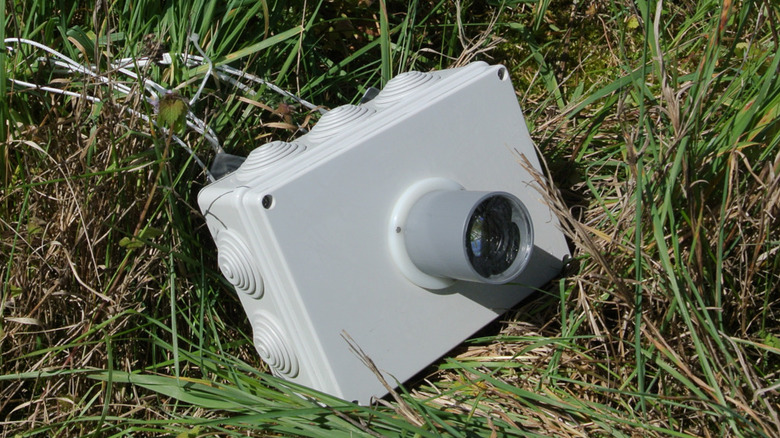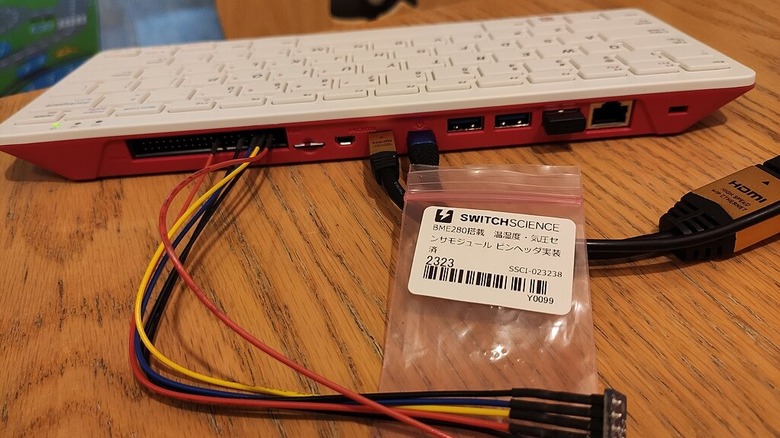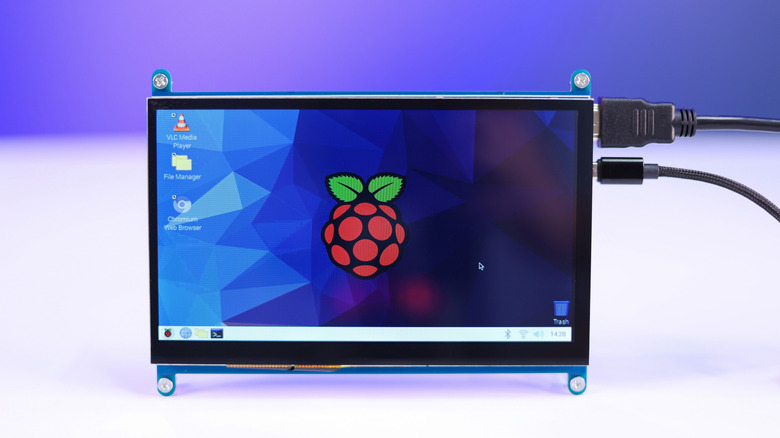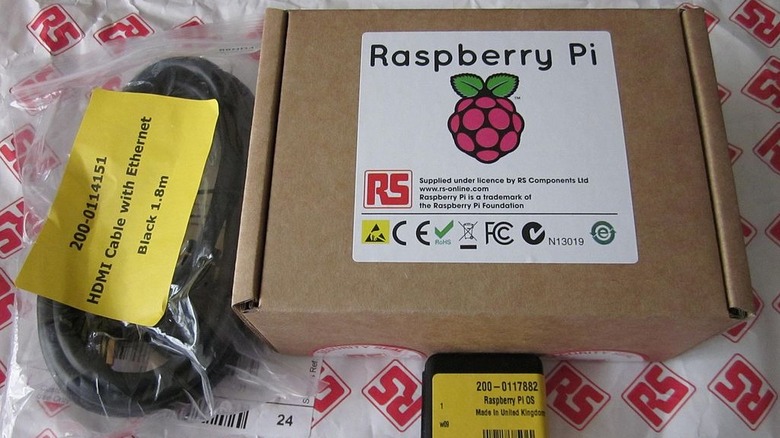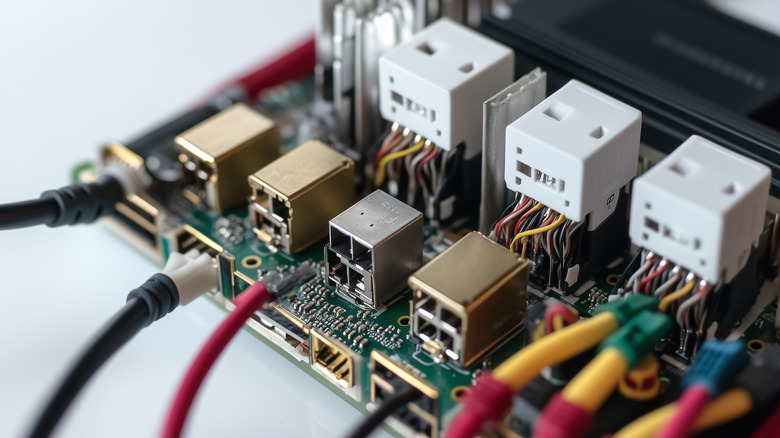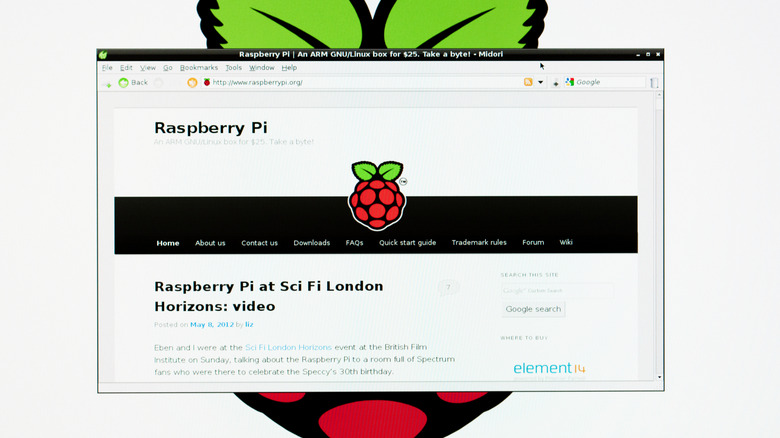11 Legitimate Ways To Make Money With Raspberry Pi Tech (That Aren't Scams)
There's plenty of things to know before buying your first Raspberry Pi, between what model to buy and the equipment you need to actually run it. A Raspberry Pi can do some amazing things, and it's hard not to imagine how it could possibly become a source of income. Have you considered how you might make money from your newfound (or long-term) hobby?
A few rather well-known money-making strategies do exist, but in reality, it's tough to earn an income mining bitcoin or selling server space. In short, it's not that easy or simple to make money with Raspberry Pi tech. Yet there are a number of legitimate ways to use your knowledge to bring in some extra cash.
In an online world saturated with get-rich-quick schemes, taking the longer route to building up your skills and experience could pay off in the end. If you're adept at programming Raspberry Pis for various purposes, consider marketing your expertise by selling services and pre-built products, or just teaching others what you know. Here are a few ideas to get you started on the non-scam Raspberry Pi earning path.
Sell ready-made Pi-powered systems
Everyone has different ideas about what to make with a Raspberry Pi, and that may be something you can capitalize on in a new business venture. With the newer Raspberry Pi AI kit, it's easier than ever to build something cool that could sell.
Whether you're following an online tutorial or creating something brand-new, a Raspberry Pi can do anything from guiding you to park without crashing in your garage to sounding music on a controllable player to serve as a peripheral for your PC. For the money-making part, consider the fact that there are plenty of people who are intrigued by the technology that Pi offers, but don't want to program or build systems themselves.
You might develop an automatic watering system for plants, create a batch of sensors to monitor home activity, or even turn a Pi into a smart TV device. Then, you can sell such systems and devices to others. Like a few other options on this list, selling products might require you to launch a website or join an online sales platform, but if you have a marketable idea, it's a clear path toward earnings.
Program smart assistants
Plenty of people own smart assistants and their associated devices today, but new technology is always emerging — so why not consider a Raspberry Pi? The platform is so customizable that it's possible to create an entire smart home setup with Raspberry Pi, from a proprietary smart doorbell to smart lights, surveillance cameras, and more. One upside is that anything you can dream up, Raspberry Pi can do with a little tinkering and additional equipment.
Though pre-packaged home assistants from Google, Amazon, and Apple are great, the available features and price points could inspire customers to look elsewhere for the unique solutions they're after. If you can address those needs and sell a complete system, you might be able to make money off Raspberry Pi with relative ease.
This is another option that could require a sales platform to really take off, but you might start out by offering services locally. Designing and setting up a functional smart home system isn't for everyone, but plenty of people could benefit from what a Raspberry Pi-connected home assistant can do.
Develop custom software/scripts
Pi owners can find many easy Raspberry Pi projects to DIY, but not everyone knows how to write scripts or develop software. If you have those skills, or the time to hone them, you'll be ahead of the curve when it comes to creating something new and marketable. Raspberry Pi does accommodate various programming languages, but Python is built-in to every Pi, so it's the simplest to get started with in that sense.
Finding scripts online takes some searching, but between online repositories like GitHub, community forums for Pi users, and sites like Instructables, you can find many pieces of the Pi puzzle for free. That said, the ability to write Python programs could allow you to build on your knowledge and eventually develop something people will pay for.
When it comes to selling Python script, you could, again, launch your own website, but you could also write custom software for clients and skip the storefront, or start small by taking commissions in Pi forums.
Create retro gaming consoles
Building on the idea that the Raspberry Pi alone isn't enough to earn you money, consider creating a product that's highly sought-after. One of the coolest Raspberry Pi projects these days is a retro gaming console, so why not build something similar to sell? Whether it's an item inspired by archival games or something else entirely, bringing back old favorites is an excellent way to develop a product that people will invest in.
Developing a gaming console might require a pricier Pi than the entry-level Zero, but you can't go wrong with the Raspberry Pi 5, for example, that costs around $50. Some retailers offer retro gaming kits to customers, which is one way to package up the required tech, but you could also offer finished kits for a higher price. Starting a website or signing up for a platform like Etsy or Ebay could cost you, but this is another possible business idea with a low up-front cost.
Teach kids to use Raspberry Pi
Although plenty of adults are now Pi enthusiasts, the original goal of the hardware was to introduce kids to computers and coding. With a low entry cost, Pi is something they can tinker with, with little risk. The very durable Raspberry Pi devices are also perfectly suited to rough handling, according to the brand's co-founder.
Thus, one way to start making money with Raspberry Pi is to teach kids what you've already learned. Offering classes or starting clubs locally might be the simplest way to get started, especially if you can use word of mouth or social media to reach potential customers. Another option is to launch online classes through a platform like Outschool, which vets its instructors but also offers a pool of potential customers to connect with.
Children aren't the only ones who might be interested in learning what you've learned, either. Classes for adults can be another way to make money, and it's more flexible with fewer requirements, as teaching kids can involve background checks and other must-dos for their safety.
Start a YouTube channel
With everyone and their mom on YouTube these days, it might feel like a throwaway suggestion to say that creating a channel could be a way to make money from Raspberry Pi. Yet consider how much of your time you spend tinkering with Pi, and whether recording those sessions could result in some views on YouTube or another video platform.
Launching video-based social media could garner you enough views to monetize your channels, meaning you'd earn money from doing what you might already be doing. YouTube isn't for everyone, and there are some startup costs involved with any video platform, like recording equipment, for example. But if you're comfortable being on video, or have a creative way to showcase what you're making and learning without showing your face, this could be one of the simplest ways to start building additional income.
It may take some time, so a YouTube channel probably wouldn't be your only path to converting a Pi into a paycheck. Still, it's worth pursuing if you have the chops for that type of show business.
Package up DIY kits
Like retro gaming kits for Raspberry Pi, many other Pi projects can be packaged into DIY kits. You can find Raspberry Pi kits for beginners that feature the essential accessories (like cables and SD cards) and project-specific kits for unique builds, like those retro gaming stations. Think outside the box, though, and a Raspberry Pi kit can be anything you imagine.
One potentially lucrative way to sell Raspberry Pi kits is by making STEM boxes. Think of a subscription kit model, where you sell either single kits or monthly subscriptions with different projects with each shipment. If you own other equipment already, you could go even further than shipping kits with cables and storage cards, too.
With a 3D printer, the Pi world is your oyster, whether you want to print up a mini arcade game, a music player, or something you've only just imagined. Not every Raspberry Pi product takes off, but doing some market research could steer you toward a kit product that will earn a return.
Sell schematics and plans
One of the things that's so awesome about the Raspberry Pi community is that people are often open with sharing their projects, tips and plans. You can find everything from instructions on how to build your own Raspberry Pi laptop to the Python code for specific functions for Pi accessories online, and a lot of it is free. However, there could be money to be made in selling schematics and plans, depending on your build.
Websites like Etsy allow you to list digital products, which could include everything from a schematic on your Pi build to Python code customers can copy and paste. Starting a website is also an option for any of these money-making strategies, and with digital products available only as downloads, you'll avoid the headaches of shipping and customs. The biggest challenge with this possible money-making idea is the fact that it requires a pretty bright idea — something people are willing to pay for.
Host your own website
One of the most common suggestions for how to use a Raspberry Pi to make money is to sell web hosting. The only problem is that most people don't want to pay an unknown third party for web hosting when so many cheap options are available from mainstream service providers. But what if you plan to host your own website, where you'll sell products, whether Pi-related or otherwise?
Using a Raspberry Pi for web hosting lets you run your own website, where you can sell anything and everything off the technological power of your Pi. You might want to start a blog and become an affiliate for retailers like Amazon, or you might want to sell a product. Either way, hosting the website yourself is an excellent learning experience plus gives you complete control over every aspect of the site. Later, you might be able to teach others how to do the same thing — and charge them for the knowledge.
Automate social media
Social media has become a very real way to earn an income, and it turns out you can use Raspberry Pi to support those efforts. Platforms like Meta's Facebook and Instagram or YouTube, TikTok, X (formerly Twitter) and others offer a path to building an audience and earning dividends from those followers. That said, it does take a lot of effort to post consistently and attract fans.
Raspberry Pi might be able to help with your posting schedule, as you can automate social media by way of a Pi (or other tech) in many cases. For example, you can create a Twitter bot with Python, according to a Developer Platform guide from X. Not every social media platform is amenable to such automation, so it's important to read the fine print before attempting this option. Bots aren't welcome with every API, so it pays to know what you're dealing with before you put your social media account at risk.
Create a custom Pi product
If building out Pi systems or creating kits sounds like too much work, what about creating a Pi-specific product people can purchase from you? Ploopy's trackpad is a great example of innovation within the Pi ecosystem, as the company created a touchpad using Raspberry Pi microcontrollers. The company offers both ready-made and DIY options, plus it expanded into offering trackball mice as well as trackpads.
Different Raspberry Pi models are suited to different functions, but even the smallest and cheapest Pi is a handy building block for creating something awesome that others will want to buy. A custom Pi product is one way to stand out, though, especially if your product goes viral the way that Ploopy's did. It's also just plain fun to create your own devices using Raspberry Pi, since you can control every aspect of the design, or go back to the drawing board anytime. For your customers, a ready made Pi product could be a fun indulgence that makes them happy and makes you some extra cash.
